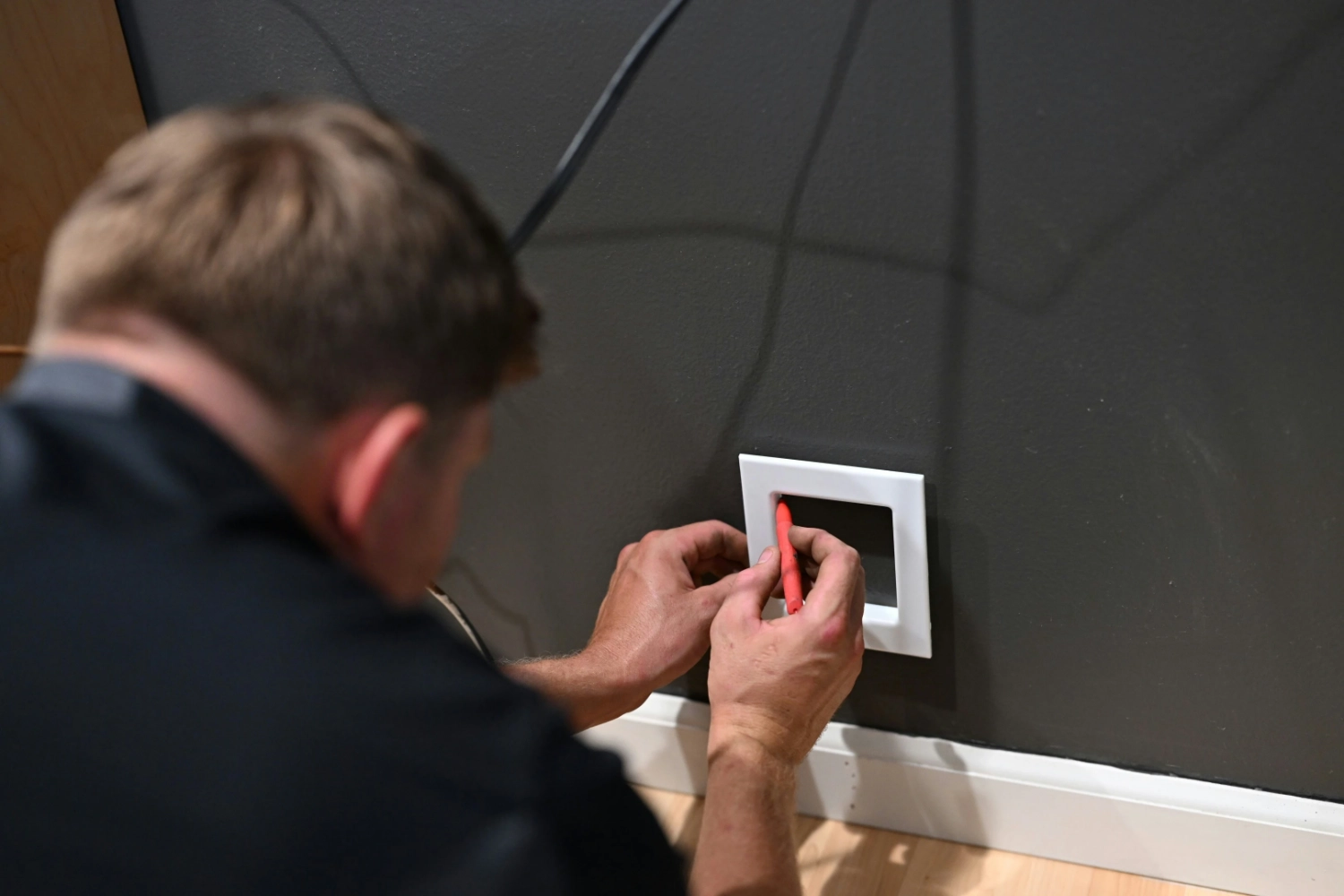How to Maintain a Good Relationship with Your Tenant

Establishing and maintaining a positive landlord-tenant relationship is essential for a successful and harmonious rental experience. A good relationship not only reduces tenant turnover and protects your investment but also ensures compliance with important UK legal obligations. By implementing clear communication, prompt maintenance responses, respectful privacy practices, fairness and flexibility, regular property upkeep, thoughtful appreciation, and professional conflict resolution, landlords can cultivate respectful, lasting, and mutually beneficial relationships with their tenants.
1. Clear Communication
Clear and consistent communication is foundational to a strong landlord-tenant relationship. Misunderstandings can escalate small issues into major conflicts, so clarity is key.
Provide a thorough orientation when a tenant moves in. Go through every clause of the tenancy agreement clearly and patiently, highlighting rent payment schedules, the handling of deposits (including deposit protection schemes, mandatory under UK law), expectations around property care, maintenance reporting, and end-of-tenancy procedures.
Regularly remind tenants about important information, such as how to report issues or emergency contact numbers. Periodically send email updates or newsletters about property maintenance, local services, and community information.
Under UK law, you're required to provide documents such as the government’s official "How to Rent" guide, Energy Performance Certificates (EPCs), and Gas Safety Certificates. Use these as opportunities to educate and communicate clearly, answering questions proactively to show your commitment to tenant welfare.
2. Prompt Maintenance
Efficient and timely maintenance responses demonstrate responsibility and commitment to tenant comfort and safety. It also directly impacts tenant satisfaction, ultimately affecting their decision to stay long-term.
In the UK, the Landlord and Tenant Act 1985 legally obligates landlords to maintain safe and habitable living conditions, including keeping structural elements sound, and providing heating, hot water, sanitation, and safe electrical systems. Clearly communicate maintenance responsibilities upfront and provide multiple ways (phone, email, online reporting) for tenants to notify you promptly of any issues.
Maintain a vetted list of reliable tradespeople and contractors to quickly address any issues that arise. Follow up with tenants post-maintenance to confirm that the work was done satisfactorily. Proactively scheduling periodic inspections (with adequate notice) can also help identify potential issues before they become serious, costly problems.
Check out our guide about landlord responsibilities for making repairs for more information on what legal obligations landlords have.

3. Respect Privacy
Respecting tenants’ privacy not only maintains trust but is legally required. UK landlords must provide tenants with at least 24 hours' notice, preferably in writing, before accessing the property. Clearly state this in the tenancy agreement and strictly adhere to it. Emergencies are the only legitimate exception.
When accessing the property, always do so at reasonable hours and minimise intrusion by completing inspections promptly. Explain clearly the reason for your visit and remain courteous and respectful throughout. Your respect for their private space builds trust and fosters goodwill.
Tenants have the right to ‘quiet enjoyment’ in their rented property - find out more about what that means to landlords.
4. Flexibility and Fairness
Situations change, and sometimes tenants face unexpected personal or financial challenges. Being empathetic, understanding, and flexible can greatly enhance your relationship and reduce unnecessary conflicts.
In financial hardships, openly discuss solutions such as temporary rent reductions, modified payment schedules, or a manageable repayment plan. Ensure all agreements are put in writing to protect both parties. Additionally, avoid potential discrimination or unfair treatment by consistently applying fair and lawful treatment as mandated under the Equality Act 2010. Fairness promotes trust, reducing tensions and disputes.
5. Regular Property Upkeep
Consistently maintaining and enhancing your property not only safeguards its value but also enhances tenant satisfaction. Regularly maintain exterior areas, landscaping, communal spaces, and essential security measures such as locks, lighting, CCTV, smoke alarms, and carbon monoxide detectors—many of which are mandated under UK law.
Conduct regular inspections (with proper notice) to ensure compliance with UK standards for health, safety, and environmental protection. Soliciting tenant feedback and involving tenants in the upkeep of their homes encourages mutual respect and pride in the property. Check out our guide on inspections and what tenants can expect from them for more information.

6. Appreciate and Acknowledge
Everyone appreciates recognition, and tenants are no different. Acknowledge their efforts, especially tenants who consistently pay rent on time, maintain the property exceptionally well, or handle minor issues proactively.
Small gestures, like sending holiday cards, birthday messages, or small tokens of appreciation, significantly strengthen tenant relationships. Providing incentives such as rent discounts or improvements in the property for long-term, responsible tenants encourages loyalty and reduces turnover.
7. Resolve Conflicts Professionally
Even in the best relationships, conflicts are inevitable. How you handle these conflicts defines the quality of your landlord-tenant relationship. Approach disagreements calmly, professionally, and with the intent to understand and resolve rather than escalate.
Use active listening techniques to clearly understand tenant concerns, validate their experiences, and clarify your perspective respectfully. Where disagreements persist, impartial mediation services can be a valuable resource in the UK to reach fair, unbiased resolutions. Remember, resolving conflicts constructively often improves long-term relations.
8. Staying Compliant with UK Landlord Laws
Awareness and consistent compliance with the UK’s complex rental regulations protect you legally and enhance your professional image. Beyond tenancy agreements and deposit schemes, you must comply with specific legislation such as:
- Gas Safety (Installation and Use) Regulations 1998: Annual gas safety inspections by Gas Safe registered engineers are mandatory.
- Electrical Safety Standards in the Private Rented Sector (England) Regulations 2020: Regular electrical safety inspections every five years.
- Smoke and Carbon Monoxide Alarm Regulations: Require functioning alarms and regular tests.
- Right to Rent checks (Immigration Act 2014): Checking tenants' immigration status is required for compliance.
Clearly communicate compliance with these obligations to tenants, helping them understand their rights and responsibilities. Demonstrating your knowledge and adherence to laws also builds trust, respect, and professionalism.

9. Encouraging Open Feedback and Continuous Improvement
Soliciting tenant feedback about their experience creates a culture of continuous improvement. Regular satisfaction surveys or informal feedback sessions can uncover valuable insights, often leading to simple changes with significant positive impacts.
Acting promptly on tenant feedback shows them you value their opinions, building trust and long-term commitment. It also enables landlords to anticipate tenant needs, enhancing tenant retention rates.
10. Maintaining Professional Boundaries and Documentation
Maintain clear professional boundaries while remaining approachable and responsive. Document all interactions, including maintenance requests, agreements made in resolving conflicts, and other essential communication. Keeping accurate, well-organized records protects both you and your tenant legally and ensures transparency and accountability.
Maintaining excellent landlord-tenant relationships involves continuous effort, clear communication, legal compliance, empathy, responsiveness, and mutual respect. By investing in building positive interactions, UK landlords can foster loyalty, significantly reduce tenant turnover, protect their property investment, and create a stable, harmonious, and rewarding rental environment for everyone involved.
